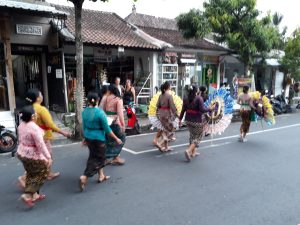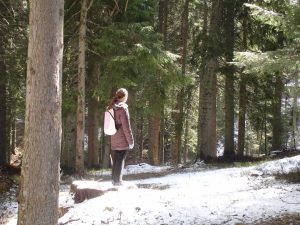Are you a soon-to-be college graduate who loves to travel? Do you love to experience new things, meet new people and immerse yourself in new cultures? If this sounds like you, you may be a great candidate for the Fulbright Program.
Sponsored by the U.S. government, the Fulbright Program facilitates cultural exchange by allowing U.S. citizens to live, work and learn abroad. Graduating college seniors, graduate students and young professionals can apply for the Fulbright U.S. Student Program grant to teach English or conduct research in over 140 countries.
Graduating seniors, graduate students and recent graduates can apply for two types of grants under the U.S. Student Program: English Teaching Assistance Awards or Open Study/Research Awards. The English Teaching Assistance Award places the student in a classroom abroad and pairs them with a teacher whom they will assist in teaching the English language to students. The Open Study/Research Award allows students to design their own projects and pursue further study and research abroad.

Several Wilkes faculty members are alumni of the Fulbright Program. Gina Zanolini Morrison, professor of global cultures and Fulbright adviser, won two Fulbright grants which allowed her to live and conduct research in Malaysia and India. Recently, Morrison landed another Fulbright grant which will allow her to return to Malaysia to conduct further research for a play she is writing about spirituality.
Amy Kuiken, a French professor in the Division of Global Cultures, won a Fulbright U.S. Student Grant to teach English in Bulgaria. In addition to teaching at an English language high school in Bourgas, Bulgaria’s fourth largest city, she also collected data on Bulgarian students’ personal experiences and attitudes in respect to learning English.
In addition to opportunities to teach English and conduct research in another country, the Fulbright Program allows students to immerse themselves in the culture of their host country by living among and interacting closely with locals.
“I never dreamed I’d live in a communist-era apartment block, meet the American Ambassador to Bulgaria, learn how to dance on a barrel, be welcomed by a village of Roma families, read Cyrillic, be able to barter in the marketplace in a Slavic language, watch dolphins in the Black Sea, tour Thracian burial grounds, flesh out the meaning of democracy with the next generation of Eastern Europeans [or] eat sheep eyeballs,” remarked Kuiken.
Fulbright U.S. Student grants cover round trip transportation costs to the host country and include a stipend, based on the cost of living in the host country, that can be used to cover room and board and any incidental expenses. Other grant benefits include accident and sickness health benefits and a 24/7 support line for urgent or non-urgent situations. Some grants may even cover partial or full tuition costs.
Applicants are required to choose one country, amongst the 140 different countries the program partners with, to apply to. This ensures students are placed in the country they are interested in going to and that matches their research interests.
Morrison cites one of the most valuable takeaways from her experiences with the Fulbright Program are the connections she formed with the people in the countries she visited, some of which she still maintains today.

“It is life changing,” said Morrison. “It makes the world seem small.”
Kuiken also formed deep connections with the locals during her time in Bulgaria. In fact, she is hosting a friend from Bulgaria who is coming to Wilkes-Barre for a visit in a few weeks.
To spread awareness of the program and speak with interested students, Morrison has started an initiative called “Fulbright Fridays.” Each Friday from 11 a.m. to 1 p.m., Morrison sets up a table at various places on campus to talk with students about the program. To find out exactly where on campus the “Fulbright Friday” table will be located each Friday, students should check Today@Wilkes.
While winning a Fulbright student grant is competitive, the Wilkes Fulbright Campus Committee is designed to help students through the application process and determine if the program is right for them. Interested students are encouraged to declare their interest with Fulbright Program Adviser Gina Zanolini Morrison as soon as possible.
The Fulbright Campus Committee holds summer workshops and meets individually with interested students to help them prepare their application for the campus deadline of Sept. 1, 2024. After submitting their application to the Wilkes Fulbright Campus Committee, students will receive feedback on their application and have the opportunity to do a practice interview with the committee before having to officially submit their application to the Fulbright Program before the national deadline in October.
Students can benefit on both a personal and professional level from taking part in the Fulbright Program. Living abroad helps to facilitate personal growth as students immerse themselves in the language, culture and challenges of living in a foreign country. On a professional level, the Fulbright Program can greatly enhance one’s resume and impress prospective employers.
“Honestly, life in Bulgaria was full of shockers and revelations, and I suspect that it will end up taking a lifetime for me to fully articulate what I got myself into,” said Kuiken. “I now use these perspectives and experiences to enrich the French language courses that I teach at Wilkes. Sometimes all we need is for someone else to show us what’s possible. My experiences living abroad have done that for me, and I aim to empower others by sharing what I’ve learned also.”
